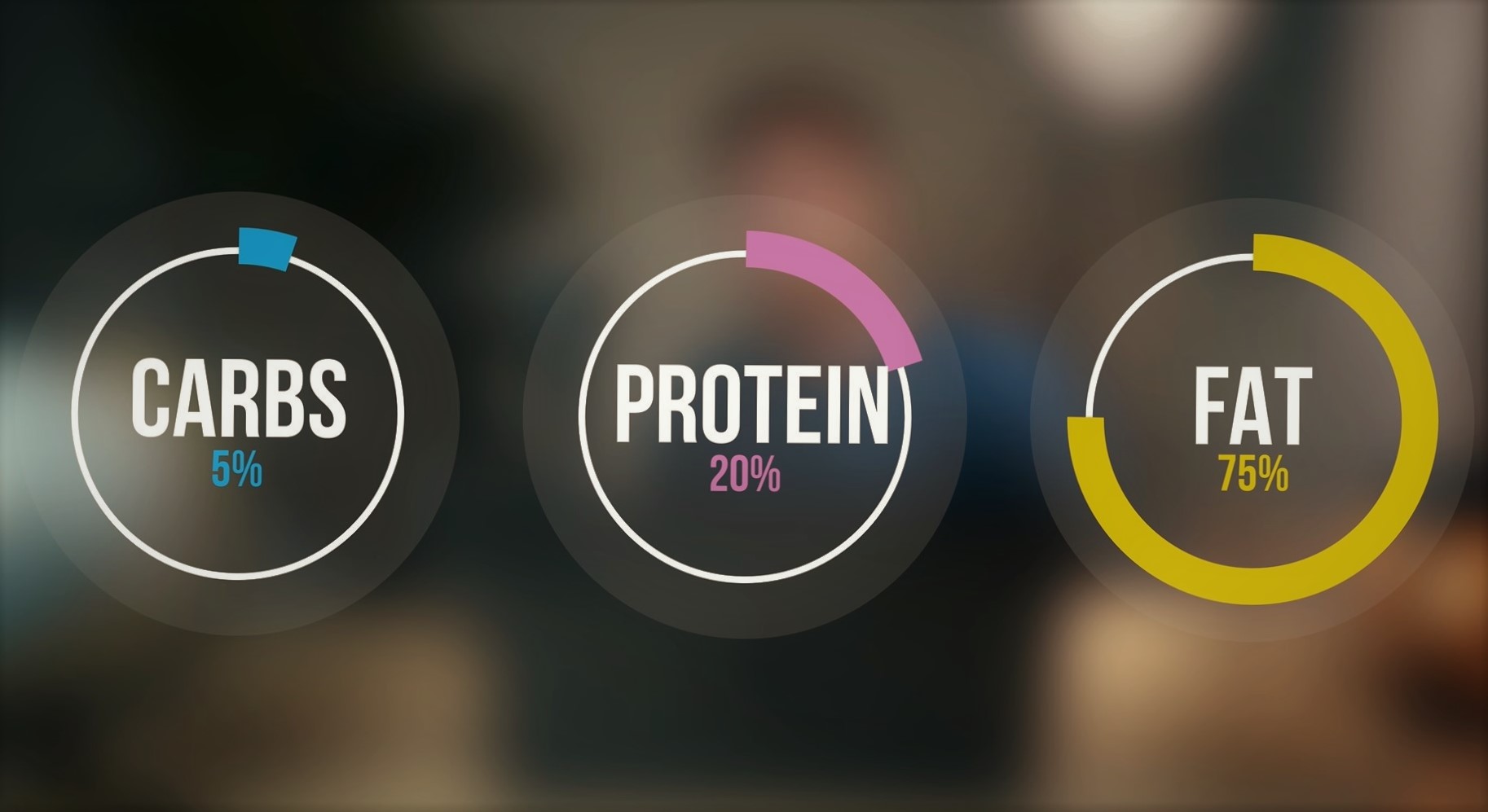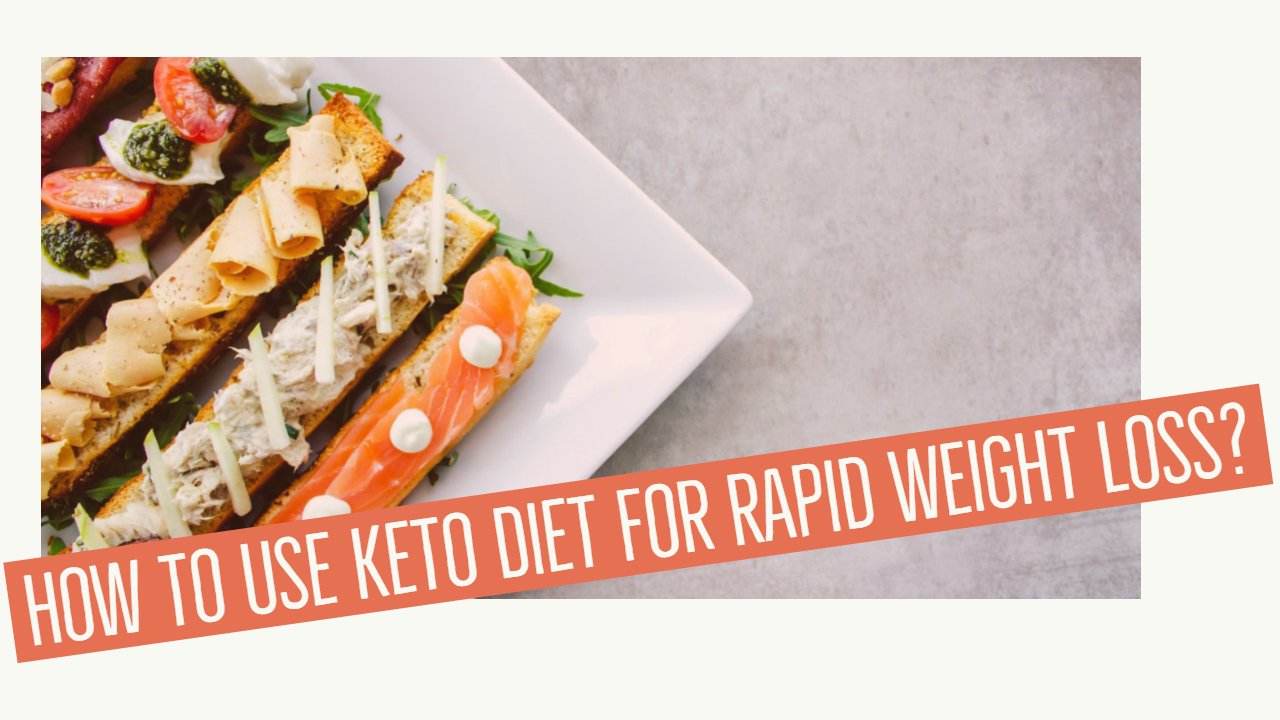We’re going to be looking at the idea that ketogenic diets are better than conventional diets for fat loss, health, and performance.
Where did the keto diet come from?
In the early 1900s, medical use of the ketogenic diet emerged as a strategy to treat epilepsy. In 1921 Dr. Russell Wilder coined the term ketogenic diet named for the presence of ketone bodies that increase in the blood when carbohydrates coming from the diet are too low to serve as the body’s main fuel source. It was found and continues to be a very effective treatment for epileptic seizures. So quickly a ketogenic diet is basically a very low carb very high-fat diet.
OVERVIEW OF KETO DIET

Calories from carbs are often brought all the way down to 5% of total caloric intake. About 20% of calories coming from protein and about 75% from fat. Generally, carbs are restricted to no more than 50 grams per day and most of those carbs tend to come from more fibrous sources like vegetables are just trace sources and foods they’re already eating.
Why do people think the keto diet is effective for fat loss?

There are two main reasons, given amongst its strongest proponents.
FIRST REASON
Insulin hypothesis: Since one of the insulin actions is lipogenesis, keeping insulin levels low by restricting carbohydrate should result in more fat mobilization.
It has been experimentally falsified in the scientific literature for being too simplistic. In specific I think it’s important to remember that carbs are not the only nutrient that spike insulin. Protein itself is also very insulinogenic. Insulin is not required for fat storage to take place. So even if you’re on a zero carb diet, fat can still be stored because of a hormone called isolation stimulating hormone or ASP. It’s quite clear that a prolonged energy surplus is the main factor driving fat gain and not a single hormone such as insulin.
SECOND REASON
The keto diet offers a unique “METABOLIC ADVANTAGE” over conventional diets.
It’s More “ENERGETICALLY COSTLY” for the body to convert proteins to glucose, so without dietary carbs, the body begins to “WASTE CALORIES” and lose more fat.
One 2013 review, there is no direct experimental evidence to support a metabolic advantage. A recent study reported that there were no changes in resting energy expenditure after a very low carb ketogenic diet. As a whole, the scientific community has pushed back against this idea quite harshly no evidence really ever turning up in support of it.
Keto diet: Truth

Rather than offering a unique metabolic advantage, the ketogenic diet may have adherents eating fewer calories through:
Reduced appetite: People eating fewer calories.
Food Elimination: The former of which I think can be achieved through other less aggressive means and the latter of which just isn’t necessary since you can impose a caloric deficit without eliminating whole food groups.
Keto: Meta-Analysis
1. A 2014 meta-analysis published in the Journal of the American Medical Association, looking at 48 studies and the efficacy of different popular fat diets like Atkins, Weight Watchers, and so on. They found that pretty much all diets result in significant weight loss which led the authors to conclude that most calorie reducing diets result in clinically important weight loss as long as the diet is maintained. Any differences were small and likely to be unimportant for example even though the Atkins diet did result in slightly more weight loss than the zone diet because different diets are variably tolerated by different individuals. The ideal diet is the one that is best adhered to so that they can stay on the diet as long as possible.
2. Another meta-analysis compared low-carb diets to calorie-matched conventional weight loss diets in overweight adults and found that trials show weight loss in the short term irrespective of whether the diet is low carb or balanced in terms of macronutrient composition. Granted low-carb is not the same thing as keto.
3. A 2013 meta-analysis which only included studies that restricted carbs to less than 50 grams per day.

Looking at the graph, we can see that clearly there was definitely a statistically significant effect in favor of keto for weight loss, across these thirteen studies. Although it’s only about one-kilogram difference and loss on average. The authors acknowledge that in the long term and when compared with conventional diets, the differences appear to be of little clinical significance, although statistically significant.
Why higher protein is likely to improve weight loss:
1. Protein is more thermogenic than carbohydrates or fats. Meaning it requires more energy to be metabolized.
2. Protein is more satiating than the other macronutrients, meaning subjects will be more likely to eat fewer calories simply because they feel more satiated from the increased protein.
In support of this idea, a 2012 study from Sona Natal, split 132 subjects into 4 calorie-matched groups. They had two normal protein groups, one with normal carbs and the other with low carbs and two high protein groups, again one normal curve group and one low carb group. After one year of dieting, they found that there were no differences between the normal carb and low carb groups if the protein was matched. They also found that a high protein diet outperformed the normal protein diet in both cases, regardless of carb intake.

So to me, this indicates that protein is more likely to be a central factor in regards to the success of a weight-loss diet rather than carb intake and this isn’t even to mention its positive effect on preventing muscle loss.
What about insulin sensitivity and heart health?
A 2018 report from the American Diabetes Association found that while some studies have shown modest benefits of very low carbohydrate or ketogenic diets. This approach may only be appropriate for short-term implementation, up to three or four months. If desired by the patient as there’s little long-term research setting benefits or harm. If you already have diabetes there’s no single ideal dietary distribution of calories amongst carbohydrates and fats. So macronutrient distribution should be individualized while keeping total calorie and metabolic goals in mind.
One meta-analysis looking more into the cardiovascular side of things did find, significantly greater increases in HDL cholesterol and LDL cholesterol at the low carb diet up at systolic and diastolic blood pressure didn’t differ significantly between the groups.
What about strength and muscle building goals?

A study from Wilson and colleagues match both calories and protein between groups and found similar increases in strength and power between a ketogenic diet and a Western diet suggesting that a keto diet might have less Fergal lytic performance reducing the potential for strength training and it does for endurance training. In other words, we think keto is probably worse for endurance training than strength training but it’s probably not really helping either of them.
A 2015 paper from Bourke and colleagues notes that fat adaptation strategies like the keto diet might impair exercise performance particularly involving shorter high-intensity events which are likely due to the impairment of muscle glycogen utilization needed to support high work rates.
Conclusion
We would say the idea that the ketogenic diet is better than a balanced more traditional diet is busted while there always will be individual differences and some people do seem to do quite well on keto. I think this ultimately comes back to personal preference and individual trial.
IN THIS POST:
Scientific References:
https://www.ncbi.nlm.nih.gov/pubmed/22419282
https://www.ncbi.nlm.nih.gov/pmc/articles/PMC1126011/pdf/3261090.pdf
https://www.ncbi.nlm.nih.gov/pubmed/28074888
https://www.ncbi.nlm.nih.gov/pubmed/23801097
https://www.ncbi.nlm.nih.gov/pubmed/16685046
https://www.ncbi.nlm.nih.gov/pubmed/25182101
https://www.ncbi.nlm.nih.gov/pubmed/25007189
https://www.ncbi.nlm.nih.gov/pubmed/23651522
https://www.ncbi.nlm.nih.gov/pubmed/22935440
https://www.ncbi.nlm.nih.gov/pubmed/26768850
https://www.ncbi.nlm.nih.gov/pubmed/28630601



